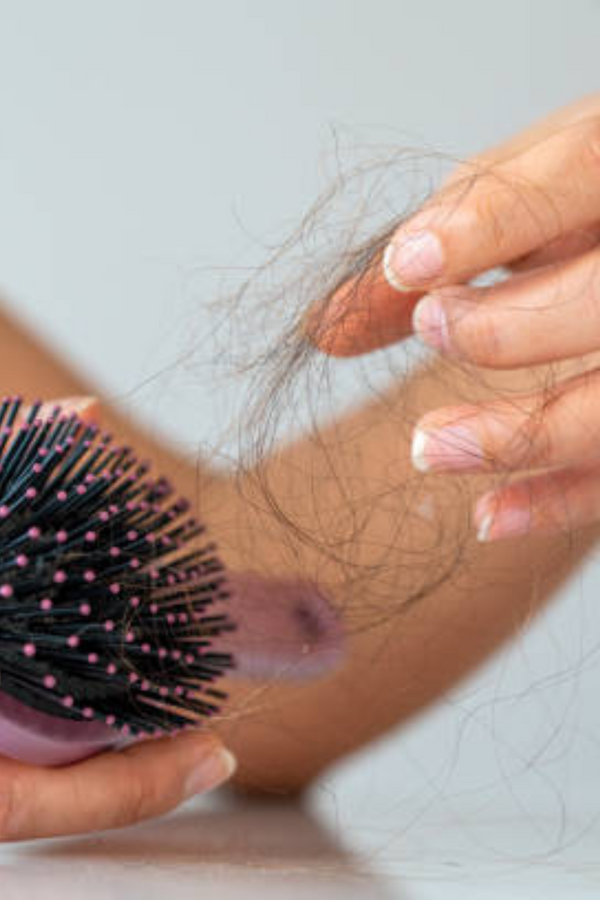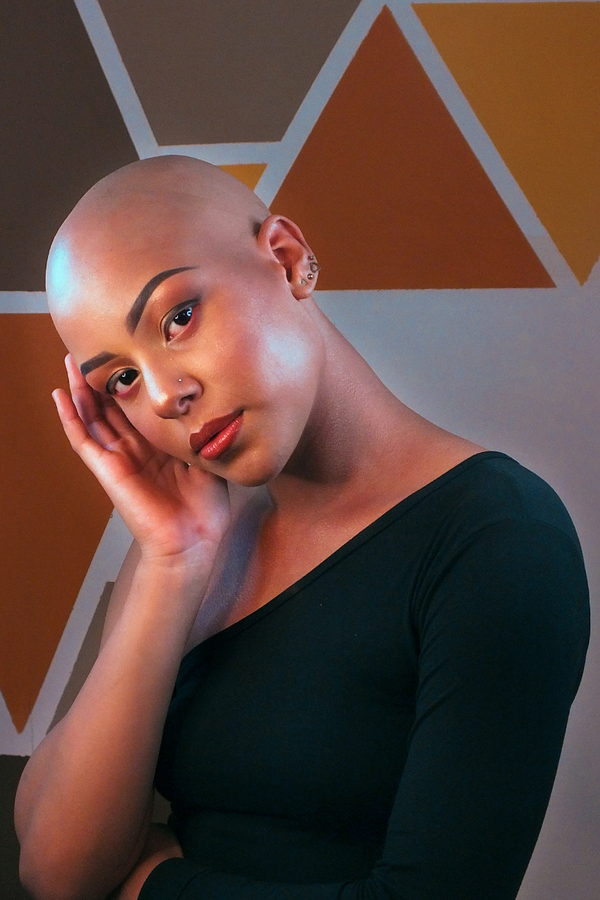SEPTEMBER: ALOPECIA AWARENESS


Unfortunately illnesses, ailments, and disorders affect those who live with them more than just one month out of the year. For that reason it is important to keep those who are affected by these things in mind and continue to give them grace and show them love. Specifically for those who live with alopecia, September is the month set aside to shed light on this troublesome disorder and to show our support for those who live with it everyday.
WHAT IS ALOPECIA?
Alopecia (also known as Alopecia Areata) is an autoimmune disease that causes you to lose your hair in clumps or through excessive shedding. Everyone’s alopecia is different so hair loss due to Alopecia may affect different people in different ways. For example, some people lose hair in the front of their head, from the nape up. Where as others may loose the in the back, from the crown down. Others experience random patches over the entire head. And some even lose hair completely and totally over their whole body. The hair loss that comes with Alopecia can be unpredictable with no rhyme or reason to the hair loss itself. Even more than that Alopecia can affect anyone. It knows no boundaries when it comes to sexual, race, culture, or age, as this disorder even affects young children.

WHAT IS THE CAUSE OF ALOPECIA?
Alopecia happens when your immune system begins to attacked by your body, specifically healthy hair follicles on your head or other areas of the body. Researchers just like with many other disorders cannot say exactly why this happens. However, they have concluded that developing alopecia areata can be contributed to genetics as well as environmental factors. According to naaf.org, it is a “polygenic disease which means that both parents must contribute a number of specific genes for a child to develop it. However, if not passed through genes, your surrounding factors and/or health conditions can cause the disease to develop. For example, cancer patients may experience hair loss that may be increased through the use of cancer drugs. After completing treatment the affects of drugs may induce permanent hair loss. Hormones, stress, menopause, and even your diet all can have devastating affects on hair and the body’s immune function.

SIGNS OF ALOPECIA
Here are some signs and symptoms you may experience if you have Alopecia.
- Small patches of bald spots on the scalp in different areas of the body that are usually round or oval.
- Significant hair loss in a specific area particularly of the head.
- Your hair is thicker on one side than the other side.
- Fingernails and toenails become brittle. You're nails my have rows or small dents in them.
- Significant hair loss in a short period of time, or loss of hair that grows back and then comes out in a different area.
*If you are experiencing any of these systems, do not self-diagnose yourself. Please see a medical professional who will be able to provide the answer to your symptoms.

DIFFERENT TYPES OF ALOPECIA:
There are three common types of alopecia:
- Alopecia areata patchy (diffuse alopecia) — This is when you have small patches of hair loss or bald spots along the scalp.
- Alopecia totalis — Occurs when you lose all of your hair on the scalp in a short period in significant clumps.
- Alopecia universalis — When you lose all of your hair on your scalp, face, and body.

DOES ALOPECIA HAVE A CURE?
Alopecia does not have one product that is recommended by medical professionals to “cure” it.
However, you health care provider can prescribe medication to slow down and/or stop the hair loss process. You may get medication to help with the autoimmune part of the disorder as well. There are also other medications that can be used to stimulate hair growth such as minoxidil which is recommended by medical professionals and can often be purchased over the counter. There are multiple treatments for alopecia for you to regrow your hair as your follicles are still active. Each treatment may have certain side effects so doing your research prior to using any product or accepting any type of medical treatment is always advised.
Some individuals have decided to go the natural route to regrow their hair without the use of medication. They have used organic oils, herbs, and essential oils to create a hair growth oil and/or a scalp concoctions to stimulate hair growth daily. Once your scalp is stimulated it will encourage blood to flow to the scalp to provide it with nutrients that are needed to promote hair growth. Again there is no cure for alopecia but for some it can be managed.

Although September is alopecia awareness month, we should be aware of it all year long. It is a health deficiency that affects a lot of people including people that are close to you.
SOURCES:
https://www.naaf.org/alopecia-areata
https://www.aad.org/public/diseases/hair-loss/types/alopecia/causes
https://www.webmd.com/skin-problems-and-treatments/guide/alopecia-areata






